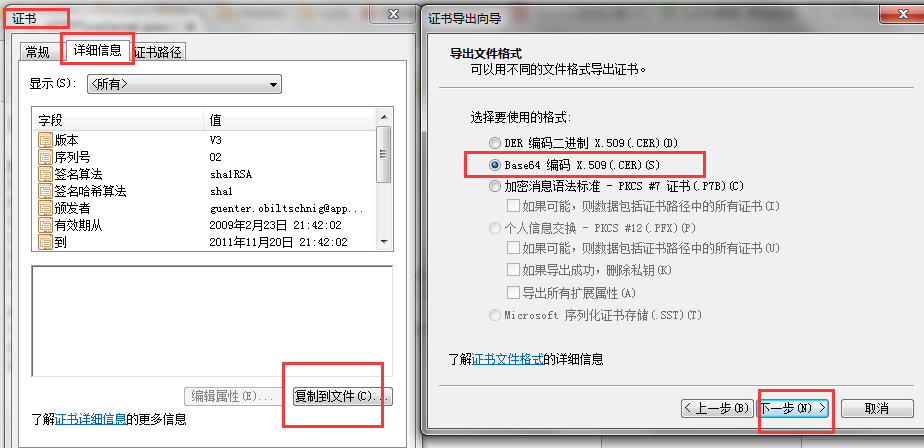

without that you will be in trouble to use the created certificate.įor the Self-sign certificate use this command line: $ openssl genrsa -des3 -passout pass:x -out 2048
#Python openssl install
Then make sure first you have install openssl and you have resolve the CN (Common Name) on your serve. If you only want to create a key juste for your ssl connection test it Is little complicate because you already have to get a CA from somewhere That suppose you want to create a CA(certificate authority) certificate, that I used these imports for the special "private" functions of OpenSSL.crypto: import OpenSSLįrom OpenSSL._util import lib as _lib, ffi as _ffiįrom OpenSSL.crypto import _new_mem_buf, _bio_to_string To get it as a string you can call the functions: _bio_to_string(bio_pub), _bio_to_string(bio_priv) Result_code = _lib.PEM_write_bio_RSAPrivateKey(īio_priv, rsa_pkey, _ffi.NULL, _ffi.NULL, 0,Īfter this part you will have the public and private keys in your buffers. Result_code = _lib.PEM_write_bio_RSAPublicKey(bio_pub, rsa_pkey) Rsa_pkey = _lib.EVP_PKEY_get1_RSA(pk._pkey) Helper = OpenSSL.crypto._PassphraseHelper(_PEM, None) Creating a PEM file bio_pub = _new_mem_buf() # Memory buffers to write to $ python -c "from import backend print(backend.I hope this will help people in the future, because I had this same need and couldn't find an answer so I did it myself. $ pip install cryptography -no-binary :all: $ python -c "from import backend print(backend.openssl_version_text())"Įxample source build with system openssl for cryptography: $ apt install build-essential libssl-dev libffi-dev python-dev -y Other python packages, such as cryptography, have been distributing manylinux wheels with bundled openssl by default on pip for a few years now.Įxample manylinux openssl with default cryptography install: $ pip install cryptography The client git repo has more details about custom builds from source.

To instead force an install from source/setup.py using system openssl, specify the no-binary option after installing required dependencies: $ pip install -user aerospike -no-binary :all: To install a manylinux2010 wheel on most linux platforms using bundled openssl, use pip version 19.0 or above and the Aerospike Python Client version 3.8.0 or above: $ pip install -user aerospike Ls: cannot access '/usr/local/lib/python2.7/dist-packages/.libsaerospike': No such file or directoryĪs shown, the manylinux install comes with a bundled version of openssl that is different from the system openssl, but the source/setup.py install does not. $ ls -lat /usr/local/lib/python2.7/dist-packages/.libsaerospike Info: downloading '' to '/tmp/pip-install-iAAMpn/aerospike/aerospike-client-c/package/aerospike-client-c-devel-4.6.8.ubuntu18.04.x86_64.deb' $ pip install -user aerospike -no-binary :all: $ apt install build-essential python-dev libssl-dev zlib1g-dev -y Here’s an example install from source and setup.py using no-binary option and system openssl dependency: $ docker run -rm -it ubuntu:18.04 bash $ strings /usr/lib/x86_64-linux-gnu/libssl.so.1.1 | grep OpenSSL

$ strings /usr/local/lib/python2.7/dist-packages/.libsaerospike/libssl-520a8983.so.1.1 | grep "OpenSSL" $ ls -lat /usr/local/lib/python2.7/dist-packages/.libsaerospike/ĭrwxr-sr-x 2 root staff 4096 Jan 2 23:34. Here’s an example manylinux2010 installation with bundled openssl on docker ubuntu image: $ docker run -rm -it ubuntu:18.04 bash The installation type can be viewed when installing via pip with the verbose option enabled. For example, some users may wish to build the client to use a specific openssl installed on their system instead of the version we bundle in. The installation experience should be better for most users, but some may prefer to install the client using the old method. This install should work on most linux variants release since 2010, instead of only the ones that we specifically support with a c-client download.ĭependencies no longer need to be installed, since they are now bundled in with the wheel install itself.
#Python openssl download
Starting with the Python Client version 3.8.0 and above, when using pip version 19.0 or above on linux platforms, pip will install the Aerospike Python Client via the download of a manylinux2010 wheel. Python client manylinux2010 wheel install and openssl Problem Description If you have any questions, please do not hesitate to raise a case via.

Maintenance on articles stored in this repository ceased on December 31st 2022 and this article may be stale. Content on is being migrated to either or. The Aerospike Knowledge Base has moved to.


 0 kommentar(er)
0 kommentar(er)
